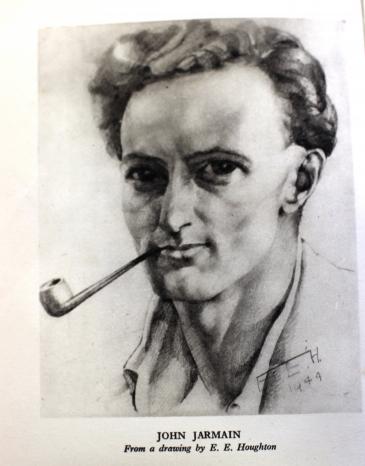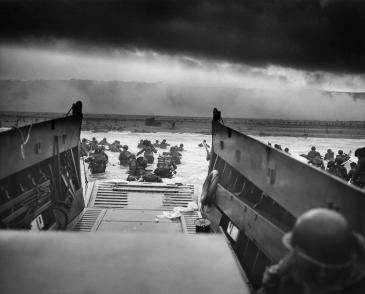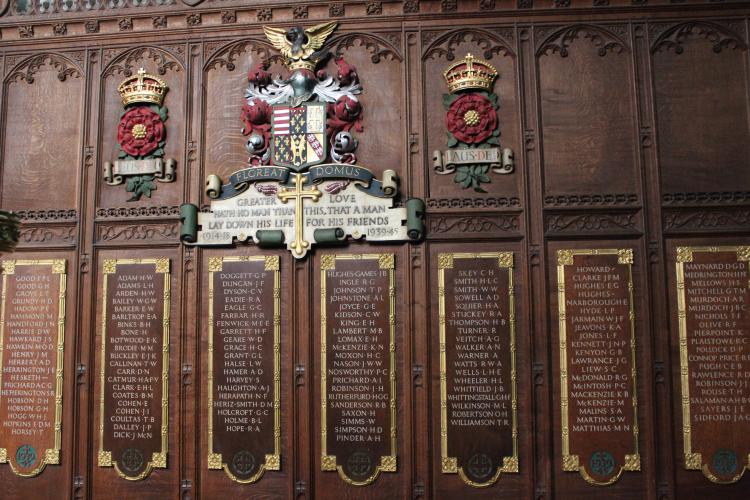
Thousands of Allied troops began landing on the beaches of Normandy in northern France at the start of a major offensive against the Germans. Paratroopers and glider-borne troops were dropped behind enemy lines.
Queens' alumnus and war poet, John Jarmain (1930), was killed not long after landing on Sword Beach (D-Day +1). At Queens' he read Mathematics and was awarded a Blue for gymnastics.
He left behind a plethora of reflective poems on his experiences of war:

Thinking of War
If I must die, forget these hands of mine
That touched your body into tiny flames:
Forget our faith, our strength, and each least sign
- The whispered wonder of our own two names
And all great words we said: how love was true
And seemed immortal. O, forget, my love,
That there was one on earth who worshipped you
And only for your sake desired to live.
I shall forget. As if I never lived
Will be the hours we had, the years we missed,
And your grief too. These hands that have so loved
Will be dumb then as hands you never kissed,
And all my body will not know your name.
I shall have broken our faith: do you the same.
June 1939
(from Poems, John Jarmain, Collins, 1945)
The call-up age to become a soldier was reduced from 20 to 18 in 1942, and from 1943 students in non-technical subjects were no longer allowed to defer. Those who remained were largely scientists and medical students. There were 117 arts students at Queens' in the Michaelmas term of 1939, and 91 in technical subjects; in 1944 the figures were 12 and 70 respectively.
A list of all Queens' students who fought and died during the Great War & World War II are commemorated in our Chapel.
